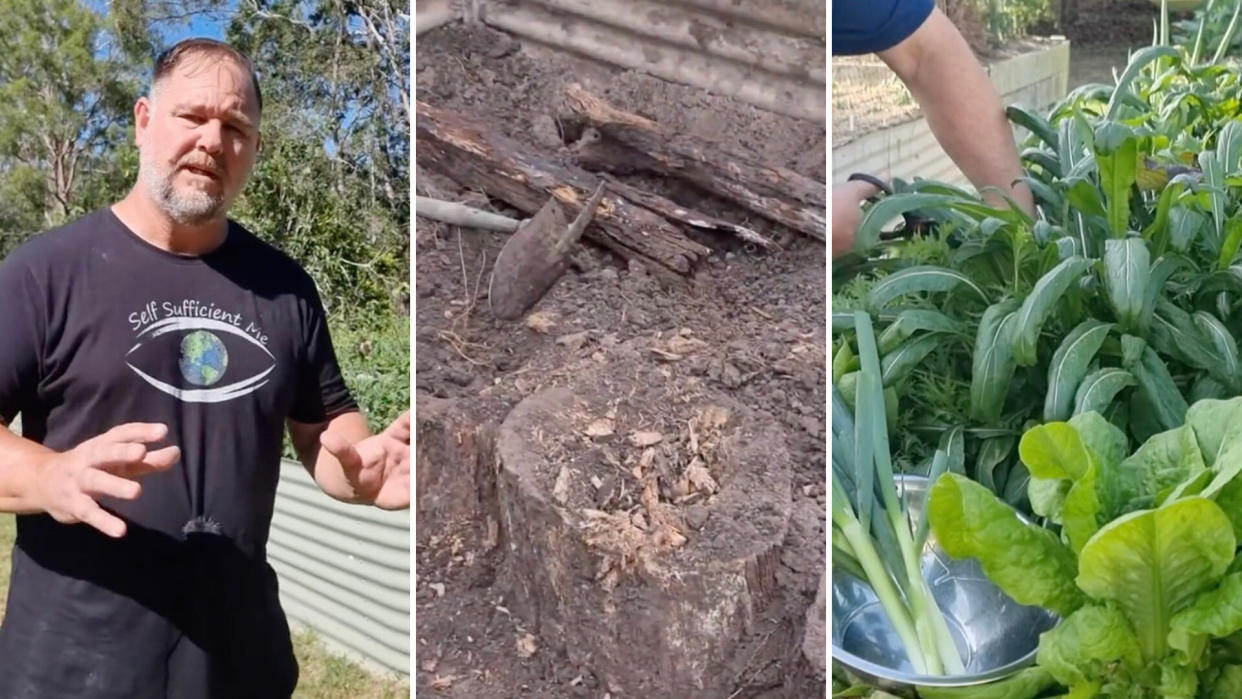Expert shares ancient gardening method that requires less soil for growing lush plants: ‘I’ve proved it [works] over the past 15 years’

If you know where to look, there are gardening tips and tricks for everything under the sun, from how to water your plants on autopilot to how to grow giant pumpkins.
For those of you wondering how to fill giant raised garden beds without breaking the bank, there’s a hack for that, too — and it’s easier than you think.
The scoop
Earth spokesperson and TikToker Self Sufficient Me (@selfsufficientme) revealed his way of filling raised garden beds: using an ancient, medieval technique.
In the video, he suggested using giant logs. This way of growing food is called hugelkultur, which is German for mound or hill culture.
He explained that soil is heaped over logs and other organic matter to create a growing medium that saves water, produces nutrients, and creates homes for animals and fungi that help plants grow to be healthier. It’s an entirely symbiotic way of gardening.
He also addressed a common fear of the technique, saying that some nitrogen might be taken from the soil to help break down logs but never so much that it affects the growth of the plants. He insisted that the benefits were many and effective.
“I’ve proved it myself over the past 15 years,” he said in an aerial shot while showcasing an impressive garden of raised beds.
How it’s helping
Hugelkultur is also referred to as lasagna gardening with all its layers. It’s about building an ecosystem wherein everything will thrive. It’s great for gardeners who have easy access to downed trees, fallen branches, and other rotting wood.
This gardening style is a phenomenal way to use yard waste, requires much less water because of the decomposition process, and allows for minimal fertilizer because of all the nutrients it naturally releases into the soil.
Gardening isn’t always cheap — especially when getting started. Tips such as this one will save you money since you’ll use what nature already provides. They also save time and energy that would be put toward the trial and error of figuring it out for yourself.
Studies have proved that those who garden are healthier than those who don’t because of increased physical exercise and fiber intake.
On that note, growing your own food decreases the demand for mass-produced, store-bought, and globally shipped produce, reducing environmental impact. It’s fewer trips to the store, too, which reduces air pollution by removing cars from roads.
Whether you have a big yard, no yard, or access to a community garden, there are plenty of gardening options for every type of living situation.
What everyone’s saying
The video acquired 12.8K likes. It’s safe to say the expert advice was well received.
“We did this, our veggie garden is thriving,” one follower commented.
“As someone who hates bending to garden, this looks amazing and doable,” another wrote.
“Man knows his gardening,” a third chimed in.
Join our free newsletter for easy tips to save more, waste less, and help yourself while helping the planet.

